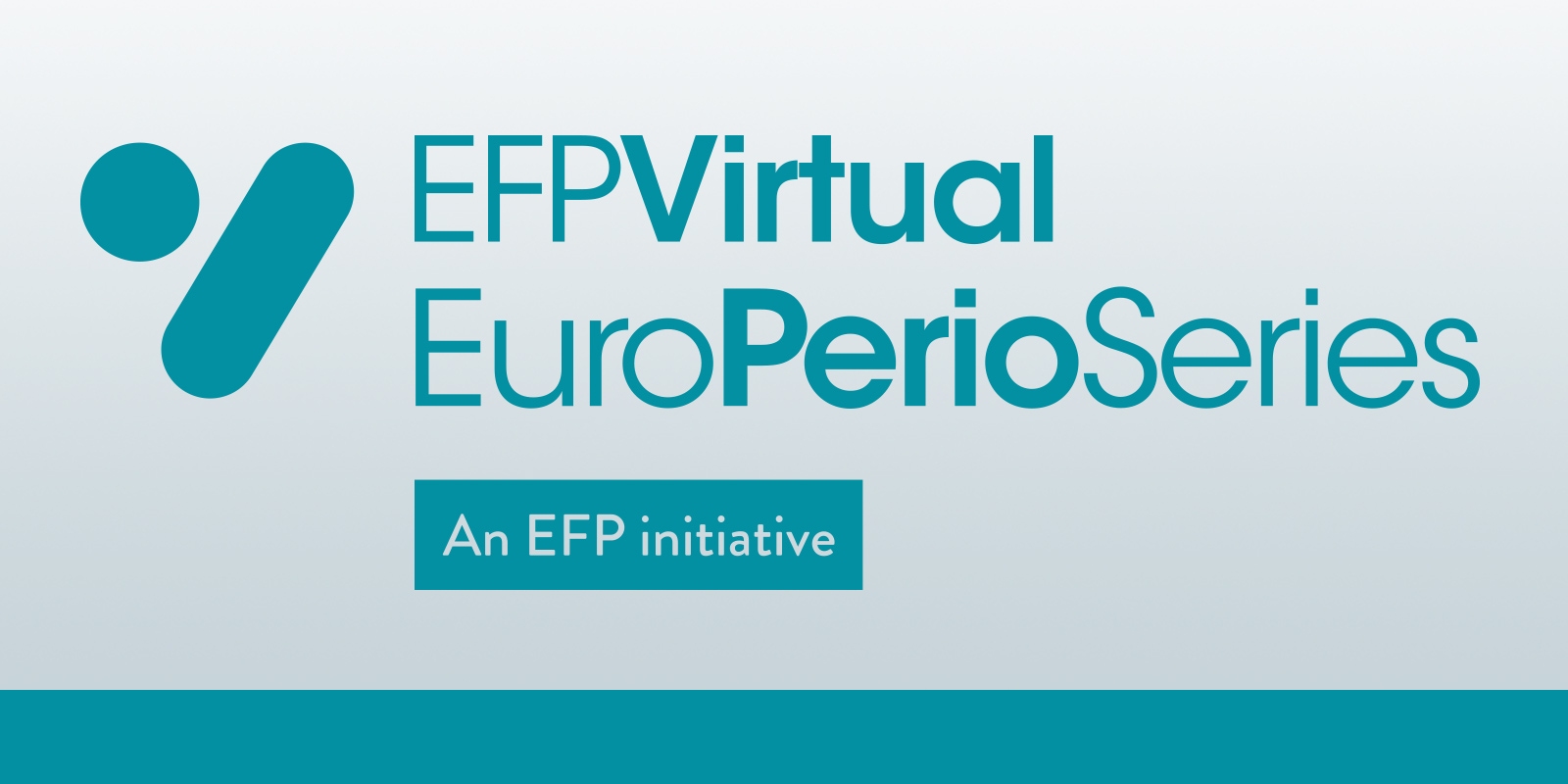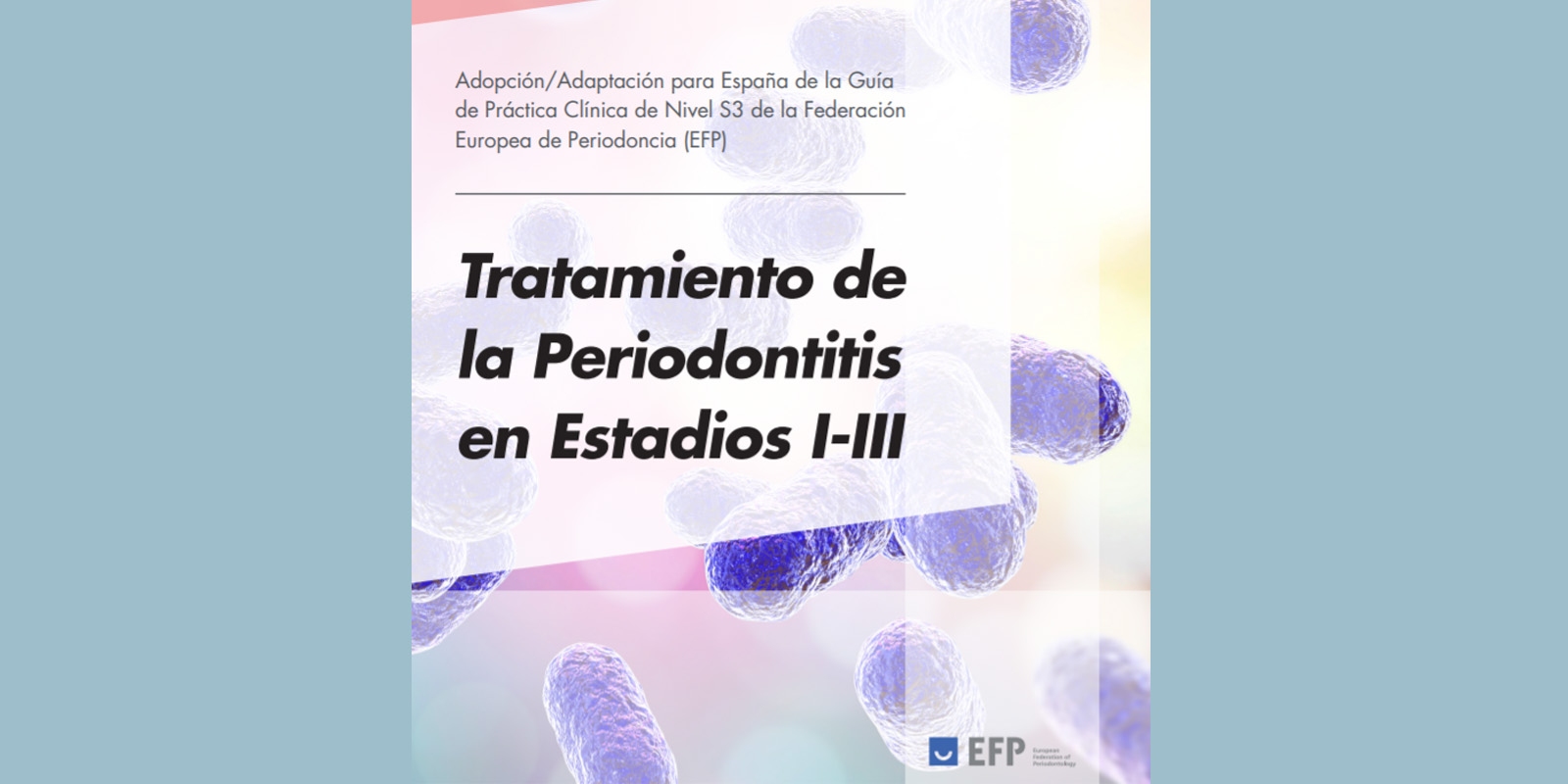DENTAID EXPERTISE
News for dentistry professionals
NEW CLASSIFICATION OF PERIODONTAL AND PERI-IMPLANT DISEASES
14 Jan 2019

At the World Workshop on the Classification of Periodontal and Peri-Implant Diseases and Conditions held in November 2017, European and North American experts agreed for the first time on the joint design of a classification scheme for periodontal and peri-implant diseases based on the scientific evidence that has surfaced over the past 18 years.
Periodontal diseases are not just among the most commonly occurring in humans (in Spain they affect 8 in every 10 people over the age of 35), but rather there is increasing evidence of their systemic impact, with major organic repercussions. It is estimated that periodontal diseases have some degree of association with 54 other diseases, some as critical as diabetes, certain pregnancy complications and numerous cardiovascular conditions.
This growing evidence of the close relationship between periodontal health and general health underscores the importance of the forthcoming publication of a new classification scheme for periodontal and peri-implant diseases and conditions. It is a joint international effort in which Spanish experts have played a prominent role, illustrating the leadership of Spanish periodontics on the world stage.
The new classification scheme for periodontal and peri-implant diseases is based on current scientific knowledge. After almost two decades, the classification of these diseases is to be updated, incorporating major improvements (periodontitis is categorised in stages and grades, following the path established in the case of oncological diseases) and enjoying worldwide consensus.
A REALITY
At a meeting held as part of the Periodontology and Oral Health Meeting of the SEPA (Spanish Society of Periodontology and Osseointegration), which brought together over 5,000 professionals in Seville, some of the most significant contributions offered by the new system for classifying periodontal and peri-implant diseases were revealed. The details of this classification scheme were then announced on June 22 at the Congress of the European Federation of Periodontology in Amsterdam (EuroPerio9).
This classification scheme has emerged as one of the most outstanding developments that have materialised in the last two decades in the field of periodontology and implant dentistry. According to Dr. Elena Figuero, Master in Periodontology and Implant Dentistry from the Universidad Complutense de Madrid, “it is an objective classification that will allow all professionals to diagnose patients in a more standardised manner, with precise, distinctive and objective sections that allow us to identify the state of the disease.”
BROAD CONSENSUS
The significance of this new classification scheme lies fundamentally in the fact that it is backed by a broad consensus. For the first time, the two world-leading organisations in the field - the European Federation of Periodontology (EFP) and the American Academy of Periodontology (AAP) - organised a meeting to develop and approve a classification system that would be truly global, to be implemented throughout the world.
At an international workshop chaired by Dr. Mariano Sanz, Professor of Periodontology at the Universidad Complutense de Madrid, European and North American experts agreed for the first time on the joint design of a classification system for periodontal and peri-implant diseases, with the participation of Spanish doctors David Herrera, Elena Figuero, Juan Blanco and Gustavo Ávila.
“It is clear that science has no borders and that access to information is universal, but all health professionals need guidelines to implement scientific knowledge and to apply this effectively in the management of the health of the population - in this case the health of periodontal and peri-implant tissues,” states Dr. Mariano Sanz, one of the professionals most involved in the development of this new classification scheme.
According to experts, this classification is meant to cover an important deficit, mainly because the most widely used classification at present dates back to 1999 and was developed under the auspices of a single scientific organisation—the AAP. Thus, it did not reflect the advances that have taken place in recent years. “It had not been adapted to the scientific knowledge that has emerged in the last 18 years and it lacked global legitimacy,” Dr. Sanz sums up.
At the same time, the classification system for peri-implant diseases applied universally up to the present time was one which emerged at the European workshops organised by the EFP, which led to exactly the same problem: it was not universal and lacked global legitimacy.
NOVELTIES AND IMPLICATIONS
The chief novelty of this scheme is that it categorises periodontitis in stages and grades. The concepts of aggressive periodontitis and chronic periodontitis disappear, and one begins to speak of periodontitis as a single disease. Although periodontitis is considered a single entity, it is classified in stages depending on its severity and on the complexity of its treatment, and grades are also distinguished according to its aggressiveness and the risk factors that the patient may present. “In particular”, says Dr. Figuero, “periodontitis is classified in four stages and three grades.”
The new classification not only covers all periodontal and peri-implant diseases, but also clinical conditions that are associated with different diseases and that are frequently treated in clinical practice, for example, periodontal abscesses. Additionally, a section on peri-implant diseases has been added, precisely defining peri-implant mucositis and peri-implantitis within the diseases.
As highlighted by Dr. Mariano Sanz, “we have opted for a classification approach similar to that applied in oncology, where distinction between different stages allows us to immediately know the degree of severity and complexity, and the grades denote the aggressiveness of the disease or the weakness of the patient suffering the disease.” In addition to the usefulness for research that this new classification scheme offers, it is considered to have positive effects on the clinical management of patients.
According to Dr. Mariano Sanz, “this classification scheme allows for much more transparent and effective communication between the professional and the patient, as it will be easier to convey the type of treatment necessary for each stage of the disease and the degree of strictness of preventive guidelines, depending on the severity of the condition.”
Likewise, Dr. Elena Figuero points out that it resolves a common problem in clinical practice, “when faced with the difficulty of diagnosing certain patients, particularly when we had to distinguish between aggressive and chronic periodontitis.”
Periodontology for all
For the President of the Spanish Society of Periodontology and Osseointegration (SEPA), Dr. Adrián Guerrero, “we are witnessing an historic effort, which will have a considerable impact on research and on clinical practise”. “In addition”, he adds, “it is an initiative that modernises periodontal care and, to a certain extent, backs the concept of ‘Periodontology for all’, which we support here at SEPA.”
Under this premise, the Alliance for Periodontal and General Health has arisen, counting on the membership of leading scientific and medical institutions, including the Spanish Society of Cardiology (SEC), the Spanish Society of Diabetes (SED), the Spanish Society of Primary Care Physicians (SEMERGEN) and the Spanish Society of Gynaecology and Obstetrics (SEGO). “Undoubtedly,” Dr. Guerrero emphasises, “oral health and general health were never as cohesive as they are now.”
RELATED ARTICLES

17 Feb 2022
EuroPerio Series: professional discussions and scientific exchange
To keep the global perio community up to date with the latest research findings as well as give a taster of what is to come at EuroPerio10, the…

21 Jan 2022
Xerostomia in COVID-19 positive patients: clinical considerations
Severe Acute Respiratory Syndrome Coronavirus 2 (SARS-CoV-2) the cause of the pandemic known as COVID-19, affects different organs and systems (lungs,…

20 Jan 2022
A guide adapted to Spain to optimise the approach to periodontitis
There are currently numerous clinical practice guidelines to direct the treatment of many systemic diseases (such as diabetes, depression,…
Sign up for the DENTAID Expertise newsletter
Sign up for the newsletter